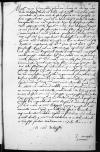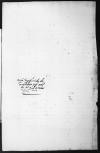Letter #113
Ioannes DANTISCUS to Sigmund von HERBERSTEINCracow (Kraków), 1518-07-12
Manuscript sources:
Prints:
| ||||||
Text & apparatus & commentary Plain text Text & commentary Text & apparatus Excerpts concerning Dantiscus' travels
Domino Sigismundo [de Herberstein], consiliario
Magnifice Domine, commendationem plurimam.
Litteras Magnificentiae Vestrae ego una cum domino
Datae
Magnificentiae Vestrae deditissimus
[1 ] Missing part of address were written on the lost piece of paper the seal was impressed through
[2 ] Unknown letter
[3 ] See also cf.
[4 ] After the congress in
[5 ] Pristaff – a term of Ruthenian origin (pristav) meaning – especially in Muscovy Russ – an official who accompanied foreign diplomats arriving in Muscovy, usually from the very border, and was their guide, assistant and companion, and also a spy discreetly controlling their unofficial activities and contacts. The term, adopted into Polish in the form przistaw – przystaw was used at least from the last quarter of the 14th century to mean ‘helper, assistant, guide, messenger’ (see SS), and it is in this meaning that it appears in the letter. Its notation in Dantiscus’ hand can denote both the Ruthenian and the Polish phonetics of the word. A similar notation, but certainly eflecting the Ruthenian sound, in the form: Prystaff (next to Pristaw), can be found in Herberstein’s Selbstbiographie (Herberstein 1855, p. 120-121, cf. Herberstein 1556, p. 44, 138, 152; Herberstein 1557, §§ 93, 161, 280,573, 576, 581, 600, 610, 616, 57-658)
[7 ] The court proceedings mentioned in the letter, which entailed high costs for Dantiscus, were linked to his efforts to obtain a canonry in Warmia (Ermland). While in Pressburg in 1515, King Sigismund I gave Dantiscus a written promise to grant him a canonry in the Warmia chapter, in accordance with the right to appoint canons granted him by Pope Leo X in 1514. With the death of canon Andrzej Kletz (von Tostir,Tustir) on September 5, 1515, the post of custodian became vacant in the Warmia chapter. Despite the royal guarantee, in 1517 the pope promised this benefice to Warmia canon Walenty Grabau who was in Rome. Sigismund I’s opposition to this decision is documented by his letters to the pope and cardinals (AT, IV, No. 209, p. 169-170). Dantiscus did not obtain a Warmia canonry until 1529 (see SBKW, pp. 74, 113; Borawska 1996, p. 172; BCz, pressmark 403, p. 533 (note in Maurycy Ferber’s hand on the documents connected with the case); pressmark 1594, p. 323-324 (letter of Dantiscus to Warmia bishop Fabian Luzjański, Augsburg, November 19, 1516), cf. Müller-Blessing, p. 176-178; Pociecha, IV, p. 228).
[8 ] Emperor Maximilian I probably promised Dantiscus a bishopric in the Reich on June 5-6, 1517, when Dantiscus was setting off for Poland, having been recalled by King Sigismund I. This was the only time during Dantiscus’ stay at the imperial court in 1517 that Maximilian I was in Cologne (see CEID 2.1, Introduction, p. 22-23).
[9 ] Most probably a reference to the imperial diploma granting Dantiscus the title of the count palatine ( comes palatinus, Hofpfalzgraf), see CEID 2.1, Introduction, p. 21, footnote 29 and p. 27.
[10 ] Dantiscus owed Jacob Spiegel’s poet’s laurels (1516) to his support. For more about the circumstances in which Dantiscus dedicated his Soteria to him, and the probable link between this fact and Dantiscus receiving the title of count palatine , see CEID 2.1, Introduction, p. 25-27.

